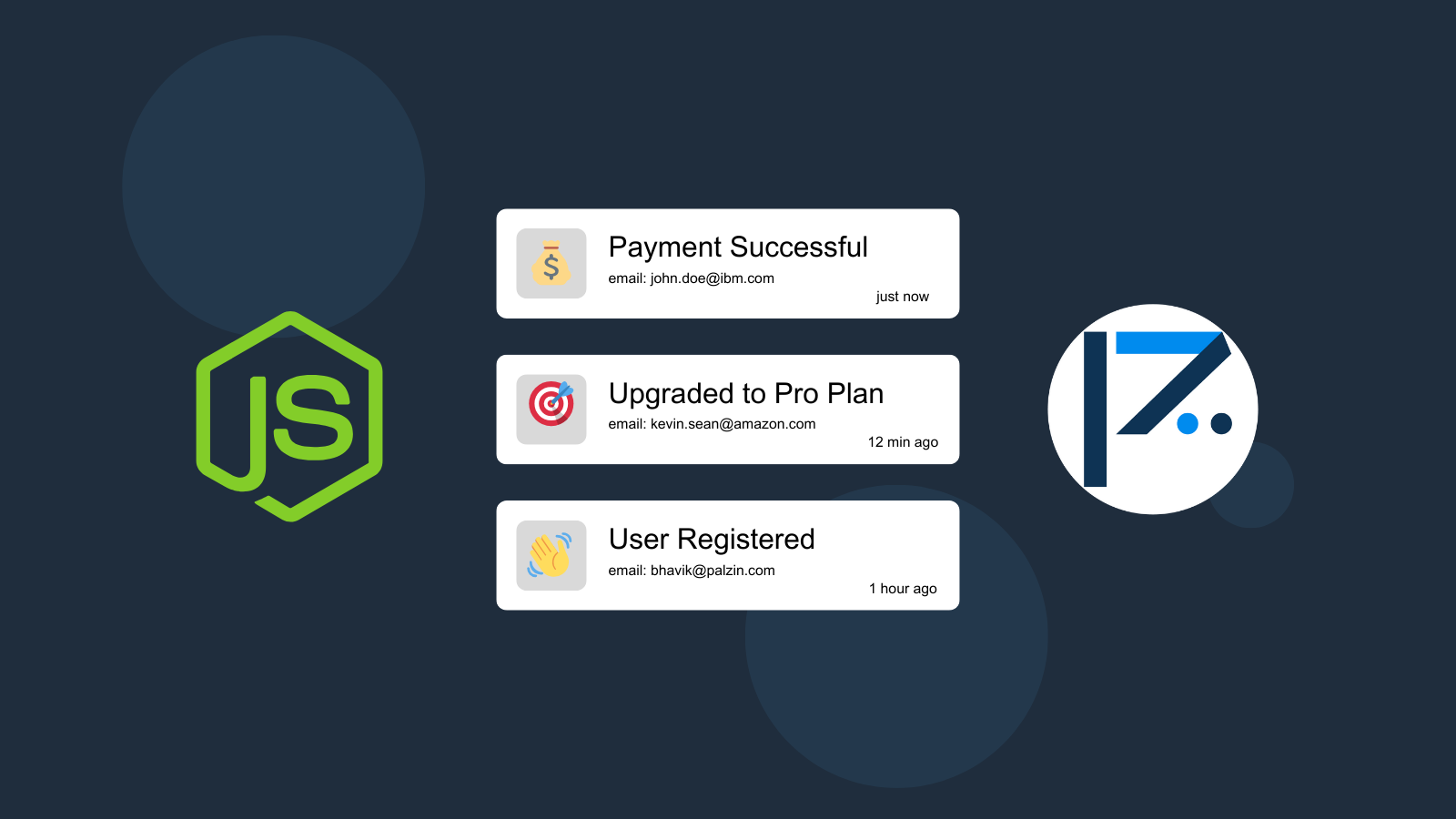
Say you have just come up with a great new product idea, and you're seriously considering turning it into a real product. Or maybe you have been working on a product for a while and are almost ready to launch it.
Usually, for both of these cases, developers create a prelaunch landing page before launching the product and set up a waitlist to collect user emails and monitor the demand for the product.
The prelaunch landing page is a great way to get your product idea out to the world and to get people interested in your product or idea. It also allows you to gather user feedback and get their input into your product.
Palzin Track makes it easy to set up and track a prelaunch waitlist for your product or idea using Nodejs. It is a simple event tracking tool that allows you to track, analyze and create reports from your waitlist data.
Connect Palzin Track to NodeJs
Simply use the following code snippets to send your waitlist signup events to Palzin Track. Make sure to replace the YOUR_API_TOKEN with your API token and update the project and channel names.
Using NodeJs with Axios
var axios = require('axios');
var data = JSON.stringify({
"project": "my-project",
"channel": "auth",
"event": "Waitlist Member Added",
"description": "email: [email protected]",
"icon": "⏰",
"notify": true
});
var config = {
method: 'post',
url: 'https://api.palzin.live/v1/log',
headers: {
'Content-Type': 'application/json',
'Authorization': 'Bearer YOUR_API_TOKEN'
},
data : data
};
axios(config)
.then(function (response) {
console.log(JSON.stringify(response.data));
})
.catch(function (error) {
console.log(error);
});
Using NodeJs with Native
var https = require('follow-redirects').https;
var fs = require('fs');
var options = {
'method': 'POST',
'hostname': 'palzin.live',
'path': '/api/v1/log',
'headers': {
'Content-Type': 'application/json',
'Authorization': 'Bearer YOUR_API_TOKEN'
},
'maxRedirects': 20
};
var req = https.request(options, function (res) {
var chunks = \[\];
res.on("data", function (chunk) {
chunks.push(chunk);
});
res.on("end", function (chunk) {
var body = Buffer.concat(chunks);
console.log(body.toString());
});
res.on("error", function (error) {
console.error(error);
});
});
var postData = JSON.stringify({
"project": "my-project",
"channel": "auth",
"event": "Waitlist Member Added",
"description": "email: [email protected]",
"icon": "⏰",
"notify": true
});
req.write(postData);
req.end();
Using NodeJs with Request
var request = require('request');
var options = {
'method': 'POST',
'url': 'https://api.palzin.live/v1/log',
'headers': {
'Content-Type': 'application/json',
'Authorization': 'Bearer YOUR_API_TOKEN'
},
body: JSON.stringify({
"project": "my-project",
"channel": "auth",
"event": "Waitlist Member Added",
"description": "email: [email protected]",
"icon": "⏰",
"notify": true
})
};
request(options, function (error, response) {
if (error) throw new Error(error);
console.log(response.body);
});
Using NodeJs with Unirest
var unirest = require('unirest');
var req = unirest('POST', 'https://api.palzin.live/v1/log')
.headers({
'Content-Type': 'application/json',
'Authorization': 'Bearer YOUR_API_TOKEN'
})
.send(JSON.stringify({
"project": "my-project",
"channel": "auth",
"event": "Waitlist Member Added",
"description": "email: [email protected]",
"icon": "⏰",
"notify": true
}))
.end(function (res) {
if (res.error) throw new Error(res.error);
console.log(res.raw_body);
});
Palzin Track is a versatile event tracking tool that isn't limited to specific use cases. It empowers you to monitor a wide range of events, whether it's tracking prelaunch waitlist signups or beta signups for a new feature or product. It works seamlessly with NodeJs and is very easy to use.
Furthermore, Palzin Track allows you to generate charts and analytics based on your data. For instance, you have the flexibility to craft a chart illustrating the daily or monthly influx of waitlist signups for your product.
Additionally, you have the capability to establish funnels for monitoring the conversion rate from waitlist signups to paying customers, features usage in your application. Furthermore, you can generate user journeys to observe how users interact with your product once they gain access to it.
Palzin Track is accessible on both desktop and mobile platforms, offering the convenience of real-time notifications upon the addition of waitlist signups. You also have the flexibility to opt for push notifications for any other events you wish to track from your NodeJs code.
Palzin Track reveals the human stories behind your data. Make user-centric decisions that drive growth.